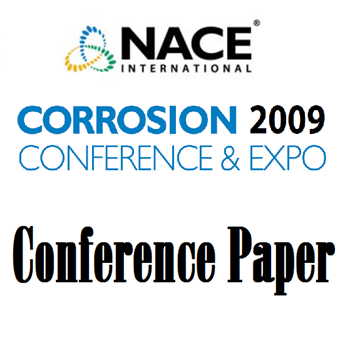Search
09259 Deposit-Assisted Corrosion of Heat-Resistant Alloys
Also Purchased
05288 Test Methodologies and Field Verification of Corrosion Inhibitors to Address under Deposit Corrosion in Oil and Gas Production Systems
Product Number:
51300-05288-SG
ISBN:
05288 2005 CP
$20.00
09338 Heat Treatment Issues on Stainless Steel Heat Exchanger Tubes
Product Number:
51300-09338-SG
ISBN:
09338 2009 CP
Publication Date:
2009
$20.00
11262 Under-deposit Corrosion Failure of a Compressor after Stage Cooler at an NGL Plant- A Case Study
Product Number:
51300-11262-SG
ISBN:
2011 11262 CP
Publication Date:
2011
$20.00
Recently viewed




